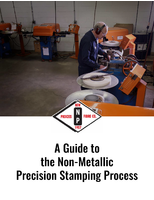White Paper outlines test protocols for new lead-free alloys.
Share:
Press Release Summary:
IPC Solder Products Value Council has published free white paper, "Analytical Procedures for Portable Lead-Free Alloy Test Data," that provides set of test protocols for evaluation of new lead-free alloys on basis of physical properties. Document describes material tests that generate portable data for: direct comparison of different alloys, helping to deterime alloy acceptability for various applications, and development of reliability models.
Original Press Release:
Test Protocols for Evaluation of New Lead-Free Alloys
Outlined in New White Paper by IPC Solder Products Value Council
BANNOCKBURN, Ill., USA, - The IPC Solder Products Value Council (SPVC) has published a free white paper, Analytical Procedures for Portable Lead-Free Alloy Test Data, that provides a set of test protocols for the evaluation of new lead-free alloys on the basis of their physical properties. Developed in cooperation with leading original equipment manufacturers (OEMs) and electronics manufacturing services (EMS) companies, the white paper will help the electronics assembly industry reduce the time and effort required to characterize an alloy and improve its processes without jeopardizing reliability.
The advent of regulations in Asia and Europe restricting the use of certain substances has forced solder material suppliers to provide the electronics industry with solders that are lead free and, at the same time, provide all the needed properties, including reliability and ease of assembly. Since then, solder suppliers have focused their efforts on improving their products and offering an ever-growing choice of alloys. Unfortunately, the lack of physical data available for these new alloys as well as inconsistent test methodology makes it virtually impossible to compare alloy properties and introduces uncertainty as to which to use.
The SPVC white paper prescribes general requirements for determining critical physical and mechanical properties of bulk lead-free solder alloys used to make high quality electronic interconnections. The document describes material tests that generate portable data for: (1) direct comparison of different alloys; (2) aiding in alloy acceptability determination for various applications; (3) development of reliability models; and (4) other uses.
For more information on Analytical Procedures for Portable Lead-Free Alloy Test Data or to download the free white paper, visit ipc.org/SPVC-LAT1. For more information on the activities of the IPC SPVC, contact Tony Hilvers, IPC vice president of industry programs, at TonyHilvers@ipc.org.
About IPC
IPC (www.IPC.org) is a global trade association based in Bannockburn, Ill., dedicated to the competitive excellence and financial success of its 2,700 member companies which represent all facets of the electronics industry, including design, printed board manufacturing, electronics assembly and test. As a member-driven organization and leading source for industry standards, training, market research and public policy advocacy, IPC supports programs to meet the needs of an estimated $1.7 trillion global electronics industry. IPC maintains additional offices in Taos, N.M.; Arlington, Va.; Garden Grove, Calif.; Stockholm, Sweden; Moscow, Russia; and Shanghai and Shenzhen, China.




